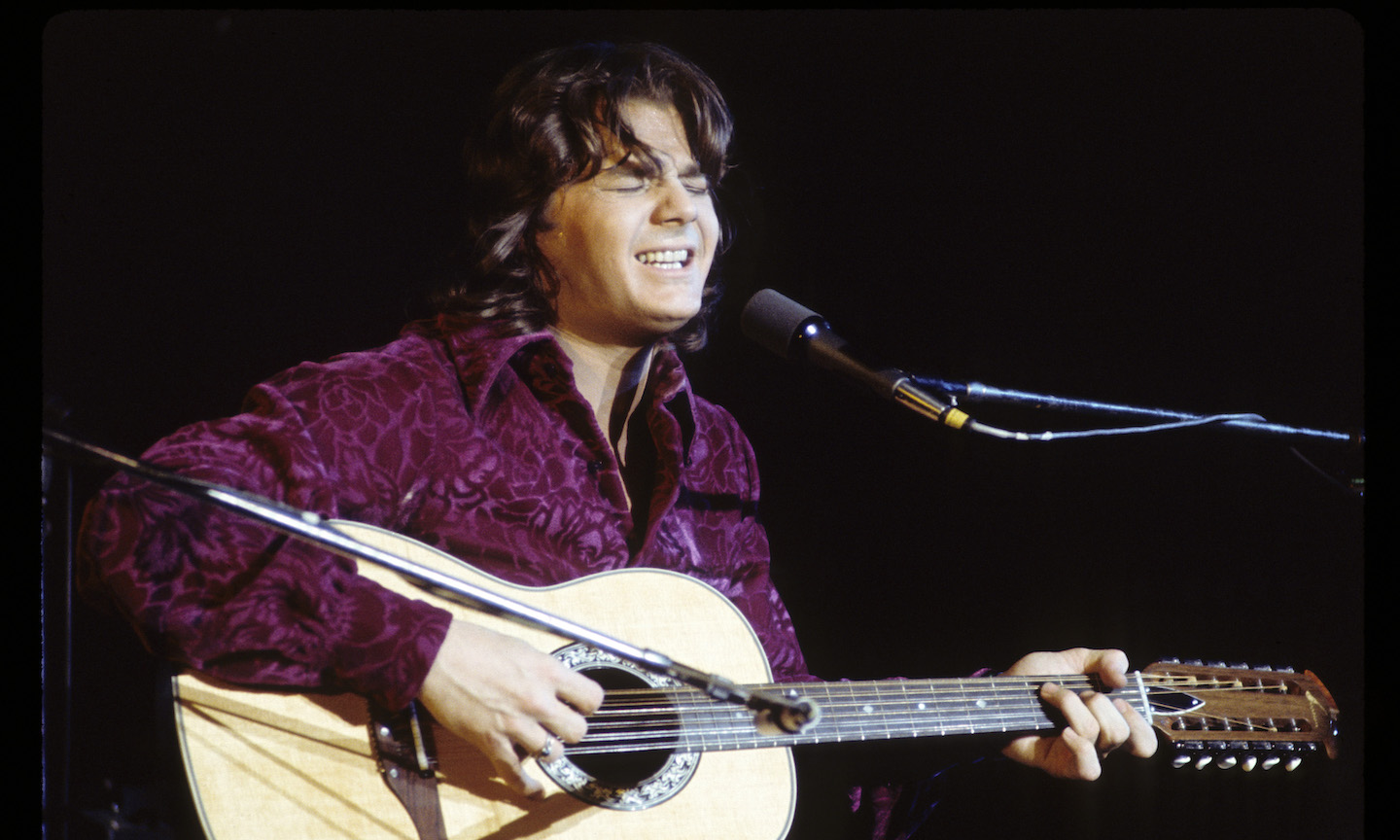Have you heard the one about the absolute rock classic that became the 353rd No.1 single in U.S. chart history in January 1974 – then took 16 years to become the 650th in the U.K.? Even more bizarrely, another 11 years, the song was sampled on another British No.1. It’s the funny story of the Steve Miller Band’s “The Joker.”
The classic single, written and produced by guitar hero and self-appointed “space cowboy” Miller himself, transformed the career of the Milwaukee-born guitar-slinger and his group, more than five years after they had made their LP debut with the psych-blues statement Children of the Future. Known and admired by an album audience for that set and subsequent released such as Sailor and Your Saving Grace, “The Joker” single would now upgrade them from album radio staples to simultaneous Top 40 stars.
The song was recorded in the summer of 1973 as sessions continued for the album of the same name at Capitol Studios. The creative development of the full-length is extensively and fascinatingly charted on the 50th anniversary 3LP + 7″ box and 2CD boxed sets J50: The Evolution of The Joker. The set presents the original album tracks chronologically positioned and contextualized among 27 previously unissued recordings from Miller’s personal archive.
His creation of the self-assured and enigmatic titular character and his mesmeric guitar features, along with the catchy “lovey-dovey” lyrical hooks and the inscrutable references to the “pompatus of love,” proved an irresistible combination to the band’s new and existing fans. Miller’s quotations from the Clovers’ “Lovey Dovey,” which spent five weeks at No.2 on the U.S. R&B chart in 1954, when he was 11 years old, were specific enough to require a co-writing credit on his own song with the writers of the earlier one, Eddie Curtis and Atlantic Records co-founder Ahmet Ertegun.
As for that mysterious word “pompatus”? It was a bastardization of the word “puppetutes.” which itself had been coined by Vernon Green, leader of the R&B group the Medallions, in their charming harmony ballad “The Letter,” in that same year of 1954. The quartet recorded for the notable Los Angeles doo-wop label Dootone.
“The Joker” entered the Billboard Hot 100 for the week of October 20, 1973 at No.86, in the week that the Rolling Stones flew to the chart summit with “Angie.” The SMB single built steadily in sales and airplay, hitting the Top 10 for the first time in mid-December and, on January 12, spending a week at No.1. The self-produced album spent a week at No.2 in a 38-week chart run, soon going gold and advancing to platinum in 1987.
“I never thought ‘The Joker’ was going to be a hit,” Miller said later. “I always wanted to make singles, I like singles. So I just started taking that two-and-a-half minute thing and started looking for sounds that record well.” For the first time, the guitarist-writer-frontman and his compadres had what he would call “a real, no kidding, non-stop hit.”
He achieved that with such dexterity that from then on, the band would be on the singles radar as well as an album act, although it was on their next LP, 1976’s Fly Like An Eagle, that they really came into their own as a crossover group. Strangely, for all of its airplay in the UK on BBC Radio 1 and elsewhere, “The Joker” failed to hit there, and the band’s only singles chart appearance of the 1970s came on their No.11 hit “Rock’n Me.”
Fast forward 16 years…
The story of the song then goes fast-forward 16 years, to the period when TV and cinema commercials for Levis 501 jeans had the power to create new hits with catalog material. It had worked especially well for old soul staples such as Ben E. King’s “Stand By Me,” Marvin Gaye’s “I Heard It Through The Grapevine,” and Percy Sledge’s “When A Man Loves A Woman,” among others.
Now it was Steve Miller’s turn. A new Levi’s ad directed by Hugh Johnson turned a whole new audience on to “The Joker,” which began a reemergence that took it to No.1 in the U.K. on September 15, 1990, and on to the Top 10 all over Europe. It was the longest-ever gap between transatlantic chart-toppers.
Another 11 years on, the song made an appearance on another U.K. bestseller, when Jamaican rapper-singer Shaggy sampled it, along with Merilee Rush’s “Angel Of The Morning,” on his fourth No.1, “Angel,” which topped the charts in June 2001. In 2004, a club-friendly update by British “superstar DJ” Fatboy Slim became a Top 40 UK single from his Palookaville album. By the time of the 50th anniversary album anthology, Miller’s career record sales had advanced to some 75 million, and more than five billion streams of his, and the band’s, perennial songbook.
Miller was certainly pumped about the band’s new momentum when he spoke to Circus Raves early in 1974. “I love working on records, especially when they’re going right,” he said. “That and being onstage are my favorite parts of the business, and they both turn me on.”
He knew that the groundwork for the new success with The Joker album had been carefully laid. “We played about 90 cities before we released it, 45 last year, and 45 during the spring and summer,” he said. “They were super-successful dates, and people were just sitting there waiting for us to put a record out.”
Buy or stream J50: The Evolution of The Joker.




